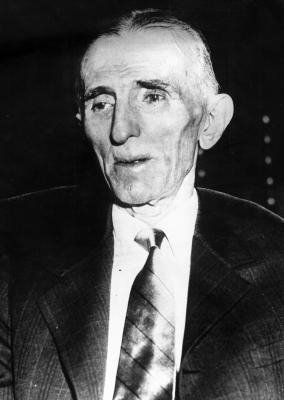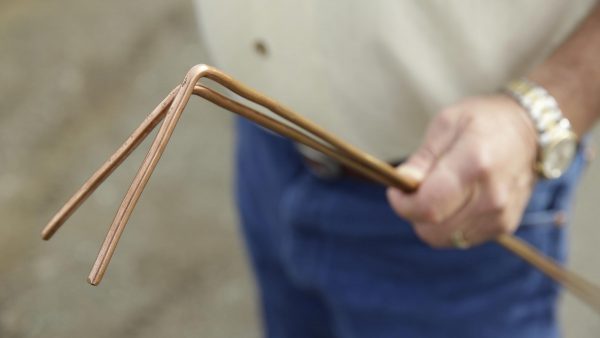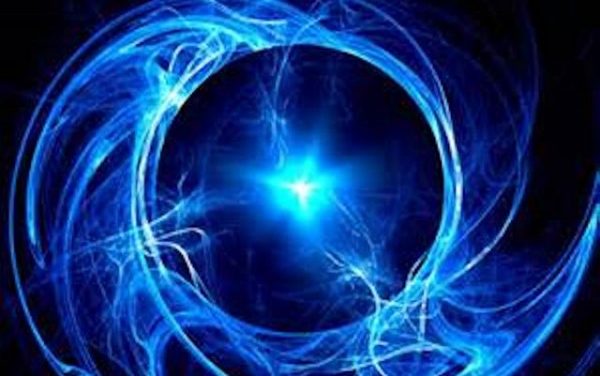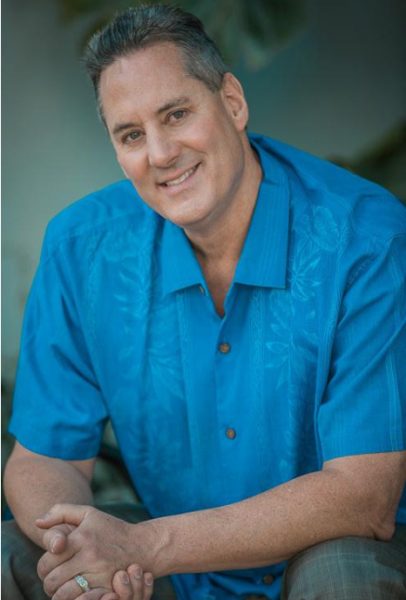Yesterday, while I was sitting on the couch, computer in my lap, I felt the most intense goosebumps on my right leg. Had it intensified further, it would have been painful. I recognized that as Erik’s energy and knew that he was sitting beside me, keeping me company. He was probably laughing at my clumsy typing and plethora of typos. The sensation lasted a long time and was so lovely I didn’t want it to go away. If any of you have experienced very localized goosebumps, know that it’s probably from spirit, Erik or otherwise.
Here’s Part Two of Tesla’s interview!
Me: Okay, tell me about your upbringing and how it made you who you are—your relationship with your parents or whatever is important to defining who Nikola Tesla was.
Tesla: My upbringing only reinforced the behavior I had as an adult and reinforced the pattern of energy that I was naturally inclined to be, with my soul pumping too much energy.
Robert: He’s giving me the impression that he was in this taskmaster situation where play was considered a luxury.
Me: Oh!
Robert: Did I interpret that correctly?
Tesla: Yes.
Robert: Oh, okay.
Tesla: That just reinforced what I became as an adult. You know this very well: What a child learns and experiences becomes patterns they tend to perpetuate. Notice I use the word, “patterns.” Energy expresses itself in different kinds of patterns, and those patterns then can be seen visually and can manifest one’s life. If you were to look at that purely from an electricity standpoint, when electricity flows through different kinds of media, it will show itself in different ways. Sometimes it’ll flow through one media and look like waves instead of jagged edges. It can look jagged when it flows through other kinds of matter. It may have little offshoots. It all depends on the kind of matter or media the current flows through. I’m using that example to show you how when electricity flows through the matter of the physical body of a spirit who has had all these experiences throughout its lifetime, it’s funneled in a way that makes that energy behave in a certain way. So the experiences themselves can alter patterns of energy that make up the soul and the physical body. I hope that makes sense.
Me: Yes, it does. Tell me about your relationship with Thomas Edison.
Tesla: Edison stole a lot of my ideas!
Me: Oooo.
Robert chuckles.
Me: He promised you $50,000 if you made his direct current generator more efficient, but after you did that, he said, “You don’t understand American humor!” I think he gave you a $10 a week raise. So you resigned immediately and went on to do your own thing. Tell me about that.
Tesla: That was really a lesson about standing up to my father. That kind of behavior—being taken advantage of by someone who I saw, to a certain extent, as a father figure—made me realize that I deserved more respect than that.
Me: Sure.
Tesla: There were many ideas besides that one that he took from me.
Me: How do you get along with him now?
Tesla: You understand that when you’re in the physical body, you’re playing a role so you let that go. You don’t hold on to the animosity. We understand that what I did that he got credit for I had a hand in creating. In that co-creation, he was meant to get the credit. I wasn’t. Sometimes you’re meant to be on stage, and sometimes you’re meant to be behind the scenes.
Me: Okay. Were you here on the earth as Nikola Tesla to learn anything?
Tesla: As it relates to the physical body, it’s what I mentioned earlier about learning how to play and learning about the meaning of relaxation. I also came to understand how people can cross your boundaries and how I pushed myself so hard that I crossed my own boundaries. That encompasses a lot—standing up to people, for instance. A lot of lessons can stem from these.
Me: Yeah, sure. Do you think you learned your lesson?
Tesla: Absolutely.
Me: Did you learn as a human or as a—
Tesla: After I crossed over.
Me: I figured. Yeah.
Tesla: The end of my life—
Robert: He’s projecting all this sadness surrounding the end of his life. There seemed to be a lot of chaos. Whether others could see it or not, it was going on in his brain like a tornado.
Me: Well, what kind of chaos are you talking about?
Tesla: Emotional.
Me: Oh. Aw, tell me more.
Tesla: I believed, especially when I was younger, that I was a genius, and when the rest of the world didn’t treat me that way, I became angry because they didn’t see me. At some point, I questioned whether I was crazy. The chaos came from constantly feeling that anger and doubt and the loss of my ability to trust the decisions I made in life.
Me: Oh, that’s awful. Okay, so do you have any regrets? Is there anything you would do differently if you had to do it again?
Tesla: Not to sound immodest, but I don’t have anything I regret because regret insinuates a choice that shouldn’t have been made. Every choice that I made I was supposed to make. That’s true for everyone.
Me: Because?
Tesla: Because it’s compelling you to become more aware. Then that awareness opens the awareness for you to gain a greater understanding of something. When you have an awareness of something, it doesn’t mean that you know how to integrate that into your life, but it does open the doorway to you taking the first step to doing that—towards integration, correct?
Me: Yes. So for example, you worked tirelessly and had very little time for play. And you gained from that the awareness of how important it is to have a balanced life?
Tesla: Correct. In the physical world, I did gain that awareness, but I didn’t integrate it into practice.
Me: Right.
Tesla: But now that I’m on this side, I can speak on such matters. Most people wouldn’t assume that I would speak about this because I mostly speak about energy, but that relates to energy: relaxation, work, these are all different patterns of energy.
Me: That’s true.
Tesla: And they have a beautiful waveform to them.
Me: Can you share a life that most influenced your one as Nikola Tesla?
(Long pause)
Robert: This looks like it happened several hundred years before he passed over. He worked on a ship. It looks like a pirate ship, but he says it’s not. It was a slave ship, some kind of slaving ship. It was even before—this was a long time ago. He’s giving me background that slavery has existed for thousands of years, and it wasn’t always involving slaves from Africa. So this is even before the whole slave trade thing in Africa. There was some kind of ship going across a channel, and he was one of the individuals who worked these big oars—very monotonous, constant rowing.
Tesla: That life, to me, had a lot of meaning because it was, to some degree, setting up the life of Nikola Tesla. You never stop rowing. You keep pushing forward with the same thing. There was that same focus. So it taught me focus and get into the flow of things.
Robert: He doesn’t really go into a lot of details other than that.




